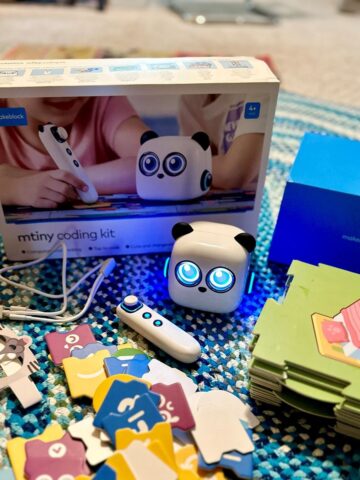The content on this website is for informational purposes only and is not meant to replace professional or medical advice. See our full disclaimer.
Every parent's dream is to raise honest and responsible kids. But what if your child has ADHD and you notice them making up stories? Is this common behavior for an ADHD child?
Let's delve into this issue, try to understand it better, and find out how we can guide our little ones.
Jump to:
ADHD and Lying
Kids with ADHD are a lot like other kids: they sometimes tell tall tales. However, if you notice your child with ADHD lies more frequently, don't jump to conclusions.
The ADHD brain, with its unique executive functioning and emotional dysregulation, may have a different perspective on truth and lies. In addition, kids with ADHD might be 30% less mature than neurotypical kids of the same age.
Here are some reasons why your ADHD child might make up stories:
Impulsivity
ADHD kids may lie due to impulsivity, one of the classic symptoms of ADHD.
In the spur of the moment, they might tell a lie to get out of trouble without thinking about the long-term consequences.
The Fear of Rejection
Children with ADHD often fear rejection, and this can make them prone to making up stories. They might lie about grades, friends, or activities to appear 'normal' or to avoid disappointing others.
It's their way of dealing with the fear of not fitting in.
Highly Active Imagination
Children with ADHD often have big imaginations. They are creative and can craft intricate, elaborate stories in their minds.
When you find your child with ADHD in a quiet moment, there's a good chance they have a whole world of intricate daydreams going on inside thier head.
ADHD children sometimes live in this world of 'magical thinking,' where the line between fantasy and reality is blurred. For instance, a 10-year-old ADHD child might genuinely believe they saw a dragon in their backyard.
They tell these stories not out of deceit, but simply because their vivid imagination makes these fantasies feel real to them.
In addition, children with ADHD have difficulties with executive functions, the set of cognitive skills that enable us to plan, focus, remember instructions, and juggle multiple tasks.
If they have a tendency to get lost in an imaginative world, they might struggle to organize their thoughts and memories correctly This could lead to confusion between real events and imagined ones.
Coping Mechanism
For some children, blurring the line between fantasy and reality could be a coping mechanism. The challenges of ADHD (struggles with schoolwork, difficulty making friends, or feeling different from peers) can be hard to deal with.
Immersing themselves in a more pleasant, imagined reality can provide an escape from these challenges.
Low Self-Confidence
It's common for people with ADHD to have low self-esteem. This lack of confidence can also lead to lying.
They might lie to make themselves appear more successful or exciting, especially if they're having a hard time at school or socially.
How To Help Your Child Who's Lying
Firstly, remember to approach this issue with compassion and understanding. Punishing or scolding your child might lead to more lying out of fear.
Here's how you can help your ADHD child:
Build Trust and Understanding
Sit down with your child and openly discuss the issue. Make sure they understand the value of honesty and the consequences of lying.
Give them a safe space to express their fears and insecurities without judgment.
Encourage Honesty
Positive reinforcement can be a powerful tool. When your child tells the truth, especially when it's difficult, commend their honesty.
Teach Emotional Regulation
Help your child develop emotional regulation skills. They can use these skills to manage feelings of fear, anxiety, or disappointment, which might be driving their need to lie.
Deep breathing exercises, mindfulness activities, meditation (with our free printable cards), or physical exercises can be a good start.
Seek Professional Help
If your child's lying becomes a persistent problem, consider seeking help from a mental health professional. They can provide guidance and strategies to manage this behavior effectively.
A professional coach for parents can also help you uncover why your child is making up stories.
As parents, it's crucial to remember that kids with ADHD don't lie to manipulate or deceive intentionally. Understanding their struggles and addressing the root cause can help you guide them toward honesty and responsibility.





We'd love to hear from you